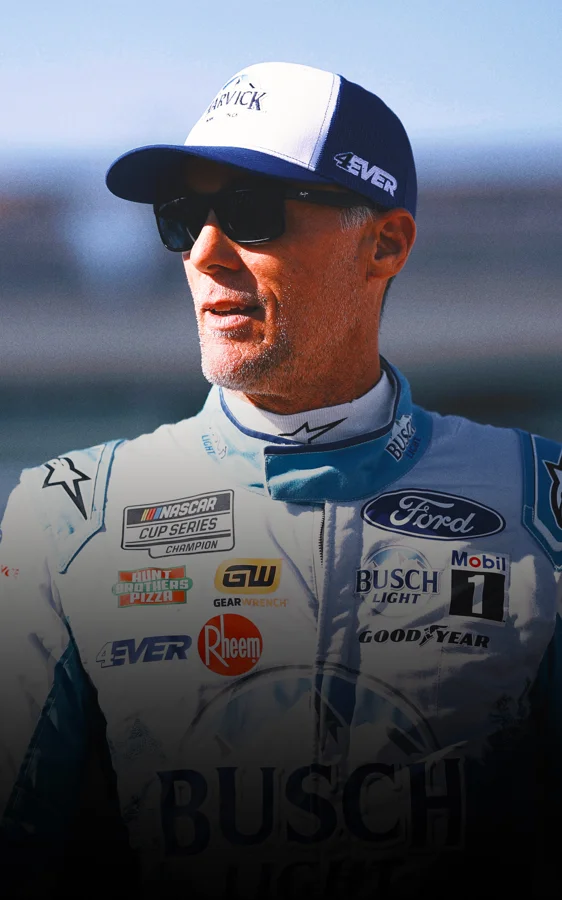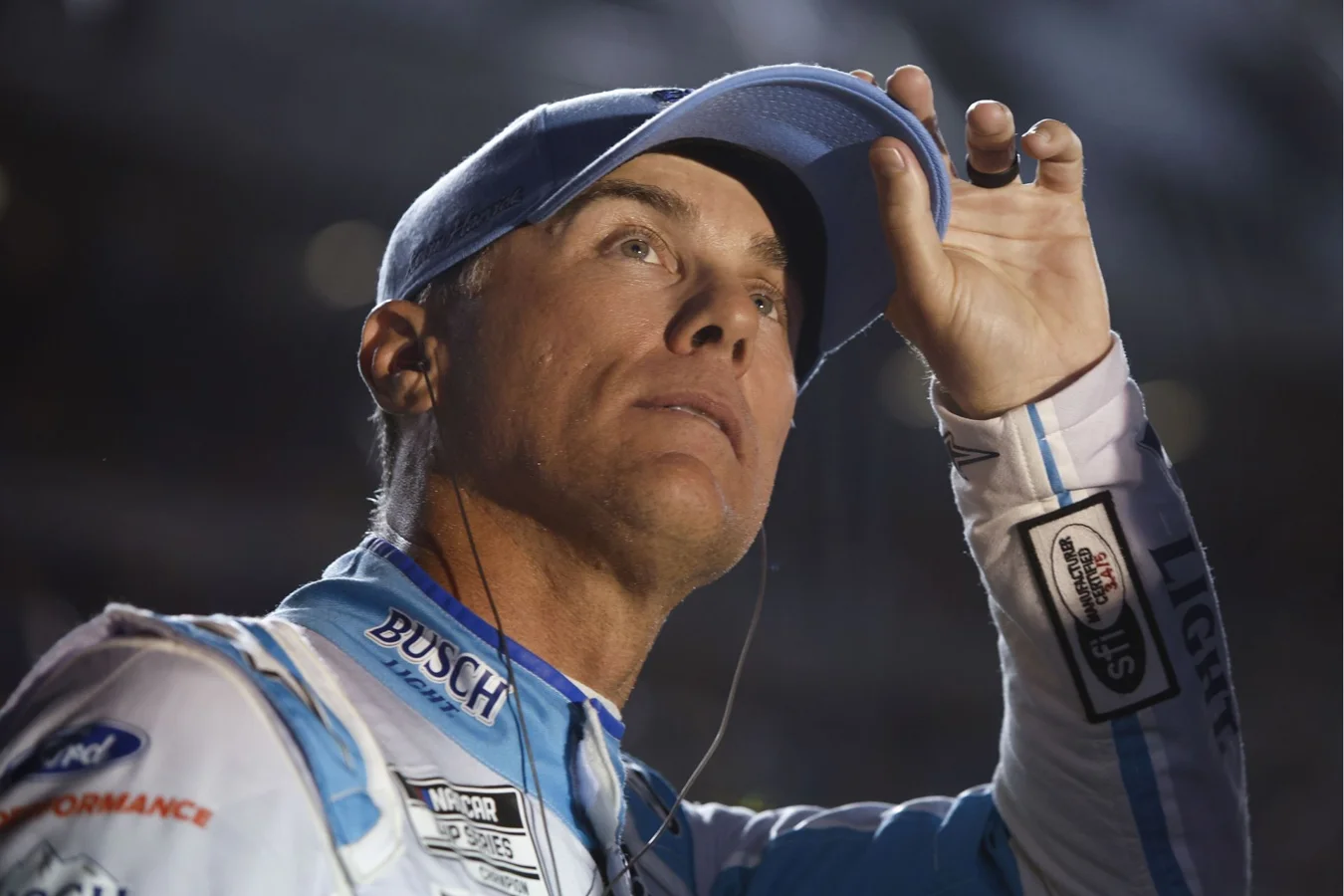Kevin Harvick, a retired NASCAR champion, has openly criticized the current postseason structure, sparking a fresh debate over the fairness of the format as this season’s championship races approach their climactic end in Phoenix. His pointed objections, often echoed by other key figures, place the focus on whether the system rewards true season-long excellence—making Harvick’s playoff criticism a focal point as the motorsport world watches the titles unfold.
Harvick Condemns Playoff System’s Impact on Consistency
Harvick’s latest statements, made as the NASCAR playoffs draw to a close, target what he sees as a fundamental flaw: the overemphasis on single-race outcomes rather than season-long performance. The controversy is particularly sharp in the Truck Series, where standout driver Corey Heim’s domination with 11 race wins and a near-record for laps led could still be undone by a single bad race in Phoenix. This structure, Harvick argues, risks sidelining consistency and could let the title slip to less successful but timely challengers.
Such a scenario isn’t far-fetched, as Ty Majeski enters the final four with no wins this year, while Lane Riggs, despite three victories, remains outside championship contention. Harvick pulled no punches regarding this possibility, declaring,
“When you look at Cory Him’s stats compared to everybody else, if he doesn’t win this championship, it’s gonna be a nuclear meltdown if they don’t change the points…If Tyler Ankrum wins the championship and Corey Heim doesn’t, it’s embarrassing to the series.”
—Kevin Harvick, Retired NASCAR Champion

This stark warning underscores Harvick’s belief that the current elimination rounds can negate an entire season’s worth of effort with one problematic result, turning the path to victory into a game of chance rather than consistent excellence. The regular season’s hard work, as he sees it, can quickly become irrelevant in a winner-takes-all standoff.
Taking his criticism further on the Happy Hour with Kevin Harvick podcast, the champion dismissed the very terminology of the sport’s postseason:
“We shouldn’t even call it playoffs, because we’re not playing anything,”
—Kevin Harvick, Retired NASCAR Champion
In Harvick’s view, the focus should return to drivers accumulating points over the entire schedule, rather than everything boiling down to one final race. He notes that the current format, in place in some shape since the “Chase for the Cup” debuted in 2004, still ends with a sudden-death showdown among four drivers, regardless of earlier dominance or consistent finishes.
An illustration of this problem is Corey Heim’s 18 top-five finishes and steady hold on the points lead—credentials that many would argue mark him as the year’s best. Yet, Harvick warns that Majeski, despite having no wins but a strong short-track setup, could capture the championship if the cards fall right in Phoenix, effectively rewarding opportunism over perseverance. The concern isn’t just hypothetical; the elimination format has produced upsets before, casting the legitimacy of such titles into question.
Other Drivers Voice Similar Playoff Concerns
Harvick isn’t alone in challenging the playoff format’s fairness. Corey Heim himself has admitted to the inherent pitfalls, saying,
“You can kind of suck all year and bring your best truck to Phoenix and you can win the whole championship. It doesn’t matter how good you’ve been all year,”
—Corey Heim, Truck Series Driver
This candid admission came after Heim broke Greg Biffle’s record for most wins in a Truck Series season, yet he remains vulnerable to losing it all because of the high-stakes, single-race finale. The format, as Heim and Harvick describe, creates a dramatic atmosphere but undermines the value of reliability and sustained performance—a sentiment that resonates with many long-time fans and insiders.
Denny Hamlin, a perennial frontrunner in the Cup Series, has also joined the discussion, expressing dissatisfaction with the unpredictable nature of the playoffs. Hamlin pointed to the way unexpected technical issues and crashes can flip championship hopes, emphasizing: It shouldn’t be so random,—Denny Hamlin, Cup Series Contender. His views support Harvick’s: when the balance shifts away from consistency, accomplished performers risk being overshadowed by fluke results or late surprises.
Driver Predictions and the Xfinity Series’ Own Drama
The debate over the playoff format isn’t limited to the Truck Series. This year’s Xfinity Series Championship is also stirring discussion, with high-profile names such as Connor Zilisch and Justin Allgaier in the mix. On his podcast, Denny Hamlin weighed in on the Xfinity Championship Four, highlighting both recent performance and the unpredictable nature of the final faceoff.
Hamlin praised Zilisch’s dramatic rookie campaign, marked by 10 wins and hundreds of laps led, placing him as a favorite due to sheer speed over the course of the year. Justin Allgaier, the defending champion, is close behind—his three wins and near-equal lap-leading stats marking him a real threat, especially given his championship experience. Jesse Love and Carson Kvapil round out the contenders, with Love’s performance at Phoenix in prior years edging him ahead. Kvapil, notably, has reached this stage without a win, much like Majeski in the Truck Series.
Hamlin explained his reasoning for the rankings:
“Connor Zilisch, let’s just rank him at one. And then you got Justin Allgaier; that’s two. Based on speed all year, it’s 88, 7, 2, 1,”
—Denny Hamlin, Cup Series Contender
Notably, Hamlin underscored the role of experience and top-tier equipment, stating,
“I’ll give the nod to Justin just based off of his car is gonna be just as prepared as the 88, he’s not gonna get beat on equipment. I believe this is where experience will benefit him well,”
—Denny Hamlin, Cup Series Contender
These insights frame the championship races as battlegrounds where raw talent, preparation, and experience collide, but whose outcomes could be skewed by the same randomness drawing Harvick’s ire.
The Broader Impact: Revisiting the Playoff Debate
As the motorsport world turns its attention to Phoenix, Harvick’s playoff criticism injects renewed urgency into an ongoing debate about the NASCAR postseason. The input from figures like Harvick, Heim, and Hamlin underscores a shared fear: that season-long excellence might not be reflected in the champion crowned, with titles decided instead by isolated success or misfortune. This has implications not only for individual legacies but also for the broader appeal of the sport, influencing perceptions among fans and media alike.
Looking to the future, the debate around the playoff format is unlikely to subside, especially if the championship results match Harvick’s warned scenarios. For the sport’s governing bodies, sponsors, and its devoted fanbase, maintaining a balance between entertainment, unpredictability, and the recognition of the best performers remains a central challenge—one that will determine how NASCAR’s champions are made and remembered in seasons to come.
